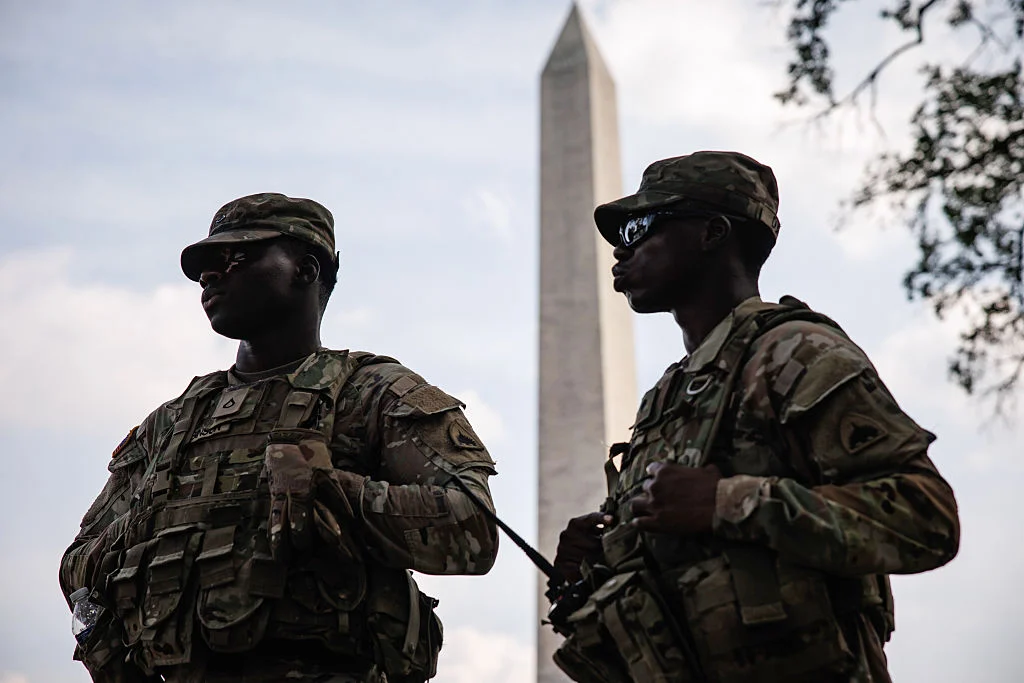The Trump Administration’s War on DEI and Its Impact on Black Military Service Members
The Trump administration’s stance on diversity, equity, and inclusion (DEI) policies is creating significant repercussions for Black military service members. Advocates argue that this push against DEI is part of a larger strategy aimed at marginalizing Black Americans throughout the federal government.
Hostility Towards Diversity
Recently, President Donald Trump and Defense Secretary Pete Hegseth delivered politicized addresses to top military leaders, reiterating their belief that DEI policies undermine standards of “fitness” and “preparedness” within the U.S. Armed Forces. Such rhetoric reflects a clear hostility toward diversity initiatives, which many see as crucial for a multifaceted institution like the military.
The Grooming Policy Controversy
A notable example of this perceived discrimination is the administration’s rollback of a longstanding grooming policy that provided waivers primarily for Black service members suffering from a painful skin condition known as pseudofolliculitis barbae (PFB). This condition affects around 60% of Black men, creating painful skin irritations associated with shaving. The policy change has ignited outrage, with critics arguing that it disproportionately affects Black troops.
Secretary Hegseth’s declaration, “The era of unprofessional appearance is over. No more beardos,” has resonated negatively among those aware of the implications of such statements. The NAACP’s President, Derrick Johnson, denounced this move as part of a broader assault on Black identity, arguing that it reflects an intentional effort to diminish Black representation in government service.
Perspectives from Veterans
Black veterans like Ed Anderson, who served in the U.S. Air Force, describe the new grooming standard as “government-sanctioned overt racism.” He emphasizes that the actions taken by the Trump administration are not subtle; they are explicit attacks on the dignity of people of color serving in the military.
Shadic Anderson, a post-9/11 Marine Corps veteran, underscored the severity of the condition, recalling the physical pain and societal scrutiny linked to his PFB. He shared, “If you are one of many that has the condition… people are going to look at you extremely differently.” Such firsthand accounts illustrate the profound emotional and physical toll these policies take on Black service members.
Claims of Uniformity
The purported rationale behind the no-beard policy—establishing uniformity—does not resonate with many Black service members and veterans. They argue that this pursuit of a strict standard fails to respect the individuality and unique challenges faced by service members of diverse backgrounds. Shadic expressed frustration over having to justify his medical condition repeatedly, only to be categorized as if it were a matter of personal choice.
The Bigger Picture
As these policies continue to unfold, the implications for Black Americans in the military are significant. With reports suggesting a potential drop in the number of Black service members both in recruitment and promotions, the consequences of the DEI rollbacks manifest in tangible ways. This trend will likely lead to long-term ramifications within military structures, affecting retention and morale.
Veterans and advocacy groups warn that the future of diversity in the military is at serious risk. Shadic points out, “This is something that targets a specific group of individuals,” stressing that the fallout will not only influence enlistment but also foster an environment where racial minorities feel increasingly alienated.
The Community Response
The broader community of Black service members recognizes the dangers posed by these changes. Ed Anderson notes that veterans have historically fought against such systemic inequalities, describing ongoing struggles as a “continuing assault on people of color.” Both Shadic and Ed emphasize the need for solidarity among service members, arguing that the fight against these policies must be collective.
This ongoing discourse reveals a stark divide within military ranks regarding the value of diversity, equity, and inclusion. As advocates for Black service members rally against policies perceived as discriminatory, the dialogue surrounding DEI within the military will likely intensify, as the stakes for inclusion and representation rise even higher.
By examining these policies through the lens of those directly affected, it becomes clear that the fight against systemic racism within the military continues to evolve. The voices of Black veterans and advocates serve as crucial reminders of the importance of representation and equity in every facet of service.



